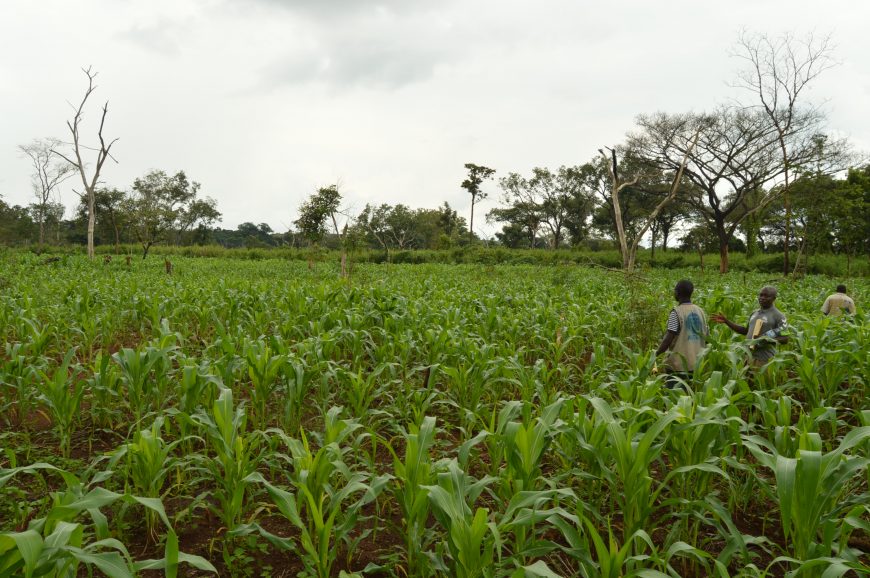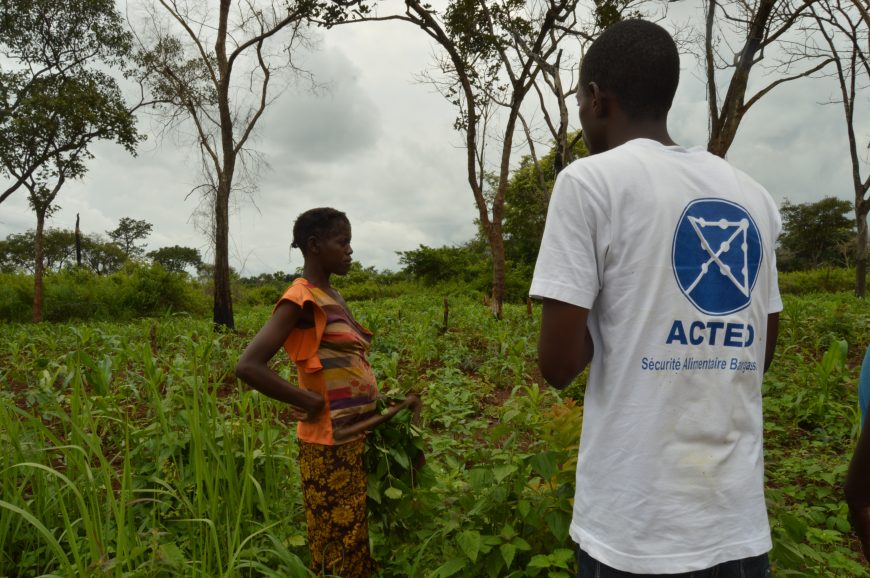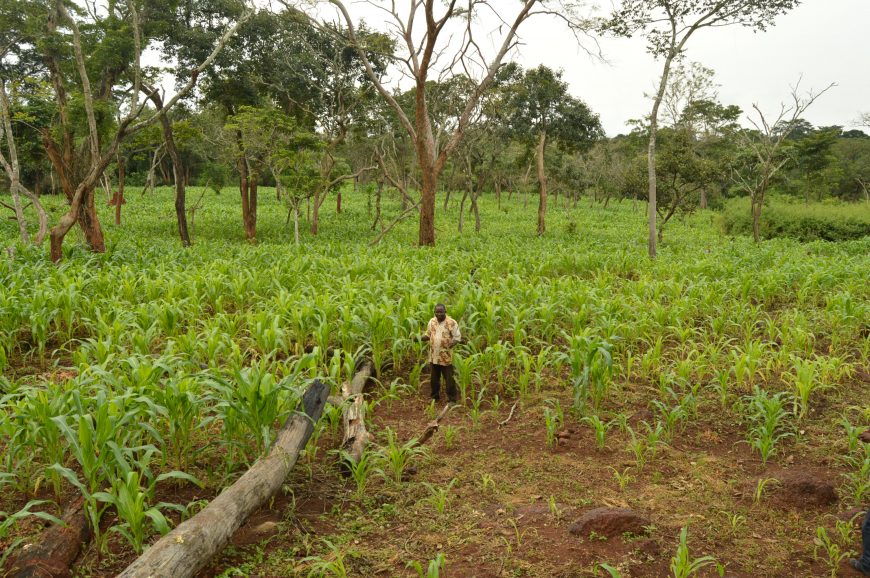
Today, ACTED’s food security team is visiting Wasinga, a small village with 189 families, to monitor the progress of 29 families who have received seeds and tools thanks to a new agricultural project in the area.
Early in the morning, at 8:00, 36 villagers participated in a training to demonstrate the benefits of weeding. With the village chief in tow, the team now sets off to inspect to give advice to those working the fields.
From 2013 – 2016 the Central African Republic has been shaken by violent conflict between armed groups. In the Ouaka, villagers were forced to flee into the “bush”. Justin, an agricultural specialist working with ACTED on the project, explains that “people had to leave their homes and farms behind, leaving without their tools and seeds for the next years harvests. Villagers have only been returning since the beginning of the year and have very little to restart their agricultural activities.”

ACTED food security project
In order to facilitate the return of families in their villages of origin, ACTED, with the support of CIAA (Comité Interministériel d’aide alimentaire), has been implementing a food security project in the Ouaka Prefecture of Central African Republic since 2017. Currently operating in 47 villages around Bambari and Kouango, two major towns in the prefecture, the project provides a boost to families with the provision of tools, seeds and trainings to increase and improve their agricultural output. Rather than distribute seeds directly to villagers, ACTED decided to use a voucher approach, allowing families participating in the project to exchange them for the seeds they wanted to buy from local vendors.
Testimonies from beneficiaries who received tools, seeds and trainings
A 30 minute walk through the forest surrounding the village, and the land suddenly clears, revealing neat rows of corn and manioc, as well as sprawling tangles of young bean sprouts. Klingou and her husband Fei are hard at work in their one acre plot. “Between the 4th and 6th of July, my husband went to the local market organized by ACTED and brought back corn, beans, squash and manioc seeds for us to plant,” explains Klingou. This same voucher approach was used for the purchasing of tools. “We are very satisfied with how things have gone so far,” adds Klingou, “with the quantity of seeds we bought we will have enough to feed our six children for the year to come.”

In the neighboring plot, Richard looks over his newly planted field of corn with satisfaction. “I was never a farmer,” he explains, “before the events (the conflict which has shaken the country since 2013) I was a miner in Bakala and had never given agriculture a go. With the outbreak of the conflict in 2013, I have decided to return to my ancestral village and to restart farming my families land.” Thanks to the training that ACTED provides, Richard has been able to learn methods to increase his crops yields. “Before planting the seeds, we learnt that we should sow our crops in lines and carefully record the dates at which we planted to improve our estimates of the reaping period,” he explains.
Through a network of experts and techicians, ACTED runs trainings with local farmers to improve their capabilities. In the months to come, 30 farmers will be selected to carry on trainings in the town of Bambari, ensuring that upon their return the rest of the community will benefit from the information learnt. “In the months to come we will learn methods for making bio-pesticides to fight off insects and ways to store and prepare our produce to increase their commercial viability,” adds Richard. “This new knowledge has given me the courage to start working again and to try and remake my life here”.
